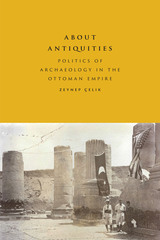
Antiquities have been pawns in empire-building and global rivalries; power struggles; assertions of national and cultural identities; and cross-cultural exchanges, cooperation, abuses, and misunderstandings—all with the underlying element of financial gain. Indeed, “who owns antiquity?” is a contentious question in many of today’s international conflicts.
About Antiquities offers an interdisciplinary study of the relationship between archaeology and empire-building around the turn of the twentieth century. Starting at Istanbul and focusing on antiquities from the Ottoman territories, Zeynep Çelik examines the popular discourse surrounding claims to the past in London, Paris, Berlin, and New York. She compares and contrasts the experiences of two museums—Istanbul’s Imperial Museum and the Metropolitan Museum of Art—that aspired to emulate European collections and gain the prestige and power of owning the material fragments of ancient history. Going beyond institutions, Çelik also unravels the complicated interactions among individuals—Westerners, Ottoman decision makers and officials, and local laborers—and their competing stakes in antiquities from such legendary sites as Ephesus, Pergamon, and Babylon.
Recovering perspectives that have been lost in histories of archaeology, particularly those of the excavation laborers whose voices have never been heard, About Antiquities provides important historical context for current controversies surrounding nation-building and the ownership of the past.
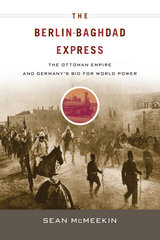
The modern Middle East was forged in the crucible of the First World War, but few know the full story of how war actually came to the region. As Sean McMeekin reveals in this startling reinterpretation of the war, it was neither the British nor the French but rather a small clique of Germans and Turks who thrust the Islamic world into the conflict for their own political, economic, and military ends.
The Berlin-Baghdad Express tells the fascinating story of how Germany exploited Ottoman pan-Islamism in order to destroy the British Empire, then the largest Islamic power in the world. Meanwhile the Young Turks harnessed themselves to German military might to avenge Turkey’s hereditary enemy, Russia. Told from the perspective of the key decision-makers on the Turco-German side, many of the most consequential events of World War I—Turkey’s entry into the war, Gallipoli, the Armenian massacres, the Arab revolt, and the Russian Revolution—are illuminated as never before.
Drawing on a wealth of new sources, McMeekin forces us to re-examine Western interference in the Middle East and its lamentable results. It is an epic tragicomedy of unintended consequences, as Turkish nationalists give Russia the war it desperately wants, jihad begets an Islamic insurrection in Mecca, German sabotage plots upend the Tsar delivering Turkey from Russia’s yoke, and German Zionism midwifes the Balfour Declaration. All along, the story is interwoven with the drama surrounding German efforts to complete the Berlin to Baghdad railway, the weapon designed to win the war and assure German hegemony over the Middle East.
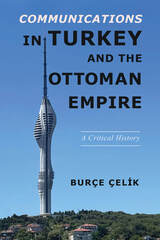
The history of communications in the Ottoman Empire and Turkey contradicts the widespread belief that communications is a byproduct of modern capitalism and other Western forces. Burçe Çelik uses a decolonial perspective to analyze the historical commodification and militarization of communications and how it affected production and practice for oppressed populations like women, the working class, and ethnic and religious minorities. Moving from the mid-nineteenth century through today, Çelik places networks within the changing geopolitical landscape and the evolution of modern capitalism in relationship to struggles involving a range of social and political actors. Throughout, she challenges Anglo- and Eurocentric assumptions that see the non-West as an ahistorical imitation of, or aberration from, the development of Western communications.
Ambitious and comprehensive, Communications in Turkey and the Ottoman Empire merges political economy with social history to challenge Western-centered assumptions about the origins and development of modern communications.
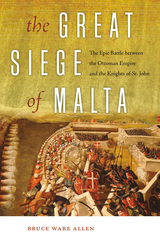

This companion to the two-volume Dumbarton Oaks Medieval Library edition and translation of the Histories by Laonikos Chalkokondyles is the first book-length investigation of an author who has been poorly studied. Providing biographical and intellectual context for Laonikos, Anthony Kaldellis shows how the author synthesized his classical models to fashion his own distinctive voice and persona as a historian.
Indebted to his teacher Plethon for his global outlook, Laonikos was one of the first historians to write with a pluralist’s sympathy for non-Greek ethnic groups, including Islamic ones. His was the first secular and neutral account of Islam written in Greek. Kaldellis deeply explores the ethnic dynamics that explicitly and implicitly undergird the Histories, which recount the rise of the Ottoman empire and the decline of the Byzantine empire, all in the context of expanding western power. Writing at once in antique and contemporary modes, Laonikos transformed “barbarian” oral traditions into a classicizing historiography that was both Greek and Ottoman in outlook.
Showing that he was instrumental in shifting the self-definition of his people from Roman to the Western category of “Greek,” Kaldellis provides a stimulating account of the momentous transformations of the mid-fifteenth century.
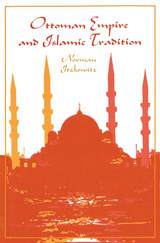

This book explores the relationship between women and property in the Greek lands and their broader social position in the century that culminated with the establishment of the national Greek state (1750–1850). Evdoxios Doxiadis focuses on the status and rights of Greek women in the later Ottoman period, the decade-long Greek War of Independence, and the first decades of the Greek state, seeking to reveal the impact that the pursuit of modernization by the early Greek governments had on women. Through the systematic examination of numerous legal documents in notarial archives from four distinct regions (Naxos, Mykonos, Athens, and Leonidio), the position of women in Greek societies of the period is illuminated in all its complexity and regional diversity. Special emphasis is placed on women’s ability in some areas to defend their property rights and be active economic agents.
Although the Greek revolutionaries and the Greek state did not curtail the rights of women with respect to property, the very institutions that were fundamental in the creation of the Greek state transformed the established relationship between women and property. Doxiadis shows that modernization proved to be an oppressive force for Greek women—though in a much more clandestine fashion than perhaps expected in other European states.
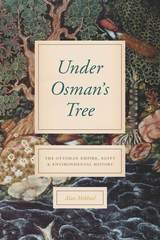
The early modern Middle East was the world’s most crucial zone of connection and interaction. Accordingly, the Ottoman Empire’s many varied environments affected and were affected by global trade, climate, and disease. From down in the mud of Egypt’s canals to up in the treetops of Anatolia, Alan Mikhail tackles major aspects of the Middle East’s environmental history: natural resource management, climate, human and animal labor, energy, water control, disease, and politics. He also points to some of the ways in which the region’s dominant religious tradition, Islam, has understood and related to the natural world. Marrying environmental and Ottoman history, Under Osman’s Tree offers a bold new interpretation of the past five hundred years of Middle Eastern history.
READERS
Browse our collection.
PUBLISHERS
See BiblioVault's publisher services.
STUDENT SERVICES
Files for college accessibility offices.
UChicago Accessibility Resources
home | accessibility | search | about | contact us
BiblioVault ® 2001 - 2024
The University of Chicago Press









